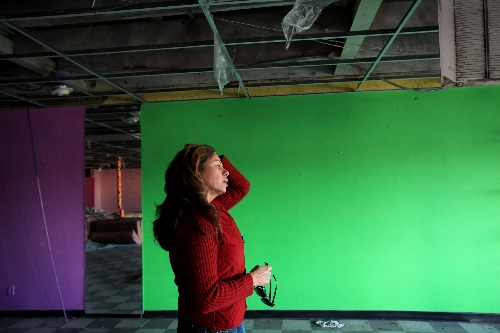Vigilance can help defuse danger of gas-line explosions

While a massive explosion in Las Vegas isn’t likely, it can definitely happen, experts say.
With proper monitoring of natural gas pipelines — residents and contractors following call-before-you-dig rules and remaining vigilant — many potential problems can be avoided.
"There are miles and miles and miles of pipeline — gas lines, water lines, electrical lines — in every direction traversing this valley," said a Las Vegas fire investigator and bomb squad technician, who preferred to remain anonymous to avoid becoming a target of violence. "By those sheer numbers, can accidents happen? Yes. Are they commonplace? No."
When an explosion happens, which probably would be a result of compromised gas pipelines, the damage can be devastating.
Earlier this month, a tractor-trailer carrying 9,100 gallons of gasoline overturned and burst into flames on southbound Interstate 15. The blast closed a stretch of the busy highway for nearly 12 hours, displacing thousands of commuters.
In July 2010, an explosion broke out at an NV Energy substation in the Las Vegas Arts District , injuring two people and leaving several nearby businesses in shambles. While local shop owners say the damages are still devastating profits and others had to close completely , even worse outcomes have occurred in other parts of the country in recent history.
In September 2010, a gas pipeline exploded in San Bruno, Calif ., a suburb of San Francisco. Eight people died in the blast that leveled 35 houses, damaged dozens more and left a 40-foot-deep crater more than 150 feet long.
Sonya Headen, a spokeswoman for Southwest Gas Corp., said the valley’s pipelines are carefully monitored but are at risk for explosions in the event of leaks caused by corrosion, natural disasters or digging.
"We keep on top of things," she said, noting the company’s 24-hour service calls to possible leaks and constant maintenance. "We surpass all of our state and federal guidelines in terms of safety."
Headen stressed the importance of calling 8 1 1 to have utility lines marked before digging since a majority of leaks are attributed to improper excavation.
Mayra Politis, owner of downtown vintage clothing store The Attic, which was severely damaged in the Arts District blast last year, suggests that residents check their insurance policy. The storefront had to move across the street after the explosion shifted the building almost an inch south and left the walls cracking and windows blown out.
"You never expect something like this to happen," said Politis, who had insurance that covered only a fraction of the damage.
"You believe that you’re covered completely in every aspect but when the time comes, there’s all these exceptions and it doesn’t help you enough."
The bomb squad technician said that aside from accidental leaks or explosions, pipelines can be a target for terrorism.
"We’re in a very technical society," he said. "There’s a lot going on. Now that we have this, stuff happens: lines fail, pipelines crash.
"It’s a risk, but we have a cost-benefit relationship. We all benefit from natural gas. There’s a lot of checks and balances to make sure nothing catastrophic happens."
Contact Southwest and Spring Valley View reporter Jessica Fryman at jfryman@viewnews.com or 380-4535.